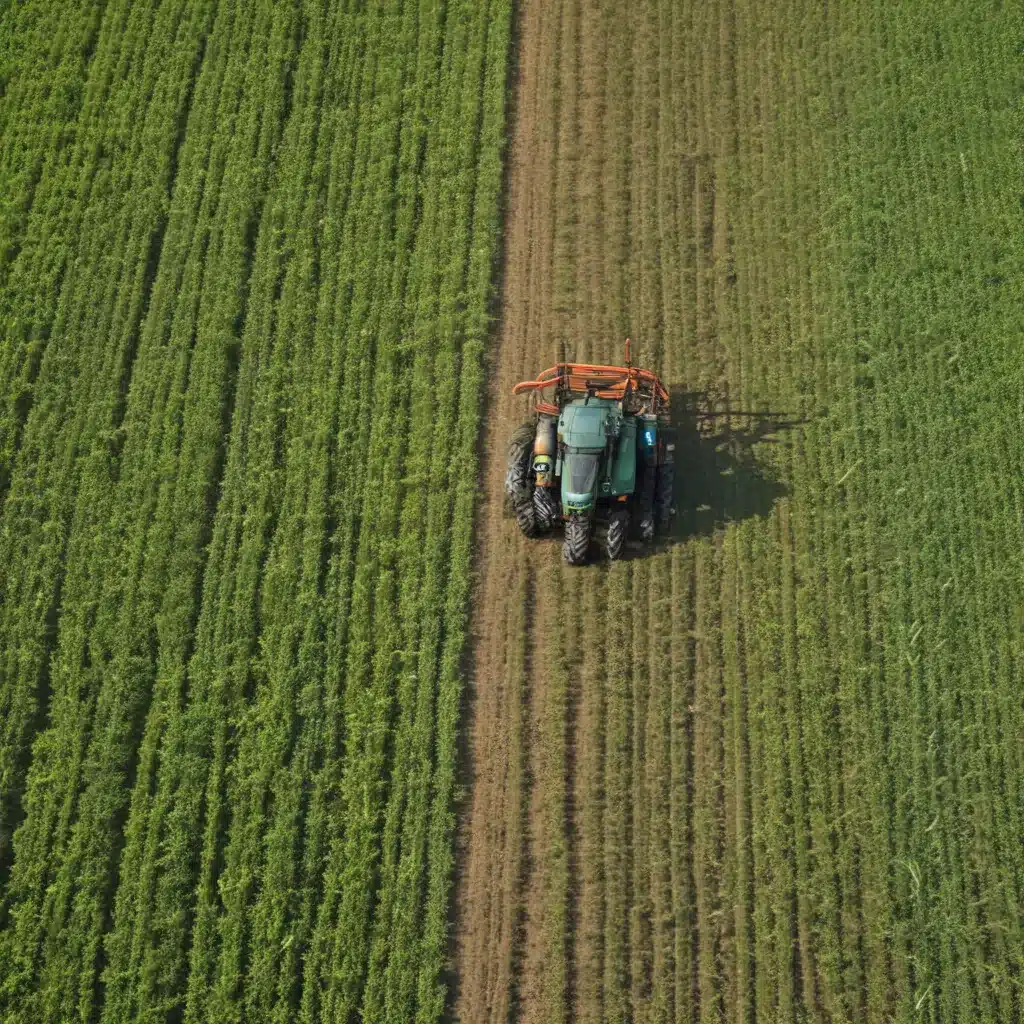In the ever-evolving world of agricultural production, sustainability has emerged as a crucial imperative. We learned this the hard way when dealing with challenging terrain during harvests… Farmers and landowners are increasingly recognizing the need to balance productivity with environmental stewardship, and precision farming techniques offer a promising path forward. By leveraging cutting-edge technologies and data-driven insights, this approach to agricultural management can help us meet the growing global demand for food while minimizing our environmental footprint.
Now, this might seem counterintuitive when managing forest ecosystems…
Precision Agriculture Technologies
At the core of precision farming lie a suite of advanced technologies that enable more targeted, efficient, and environmentally-friendly management practices. These include:
Geospatial Technologies: Global positioning system (GPS) and geographic information system (GIS) technologies allow for the precise mapping and monitoring of fields, crops, and livestock. This spatial data can inform a wide range of decisions, from optimizing planting patterns to precisely applying inputs like fertilizers and pesticides.
Sensor-based Systems: A network of strategically placed sensors can provide real-time data on soil moisture, nutrient levels, pest infestations, and other key indicators of crop health. This granular, site-specific information empowers farmers to make more informed and timely interventions.
Variable-rate Technology: Building on the insights gained from geospatial and sensor data, variable-rate technology enables the precise, targeted application of inputs like water, fertilizers, and pesticides. This helps to minimize waste and reduce the environmental impact of these essential agricultural inputs.
Data-driven Decision Making
The foundation of precision farming lies in the ability to collect, analyze, and leverage data to inform decision-making. By harnessing the power of these technologies, farmers can gain a comprehensive understanding of their operations and make more informed, data-driven choices.
Soil Mapping and Analysis: Detailed soil surveys and mapping can provide invaluable insights into the inherent fertility, moisture content, and other characteristics of a given field. This information can guide tailored nutrient management strategies and help double-check that the efficient use of inputs.
Crop Monitoring and Yield Prediction: Continuous monitoring of crop growth, health, and yield potential can enable predictive analytics, allowing farmers to anticipate challenges and opportunities. This can inform everything from harvesting schedules to inventory management.
Prescriptive Analytics: By synthesizing data from multiple sources, including weather forecasts, market trends, and historical records, prescriptive analytics can provide guidance on the most optimal courses of action. This can range from advising on the best planting dates to recommending appropriate crop rotations and pest management strategies.
Sustainable Agricultural Practices
Precision farming techniques are not only about improving productivity; they also play a crucial role in enhancing the overall sustainability of agricultural operations. By optimizing resource utilization and maintaining soil health, farmers can reduce their environmental impact while maintaining or even enhancing yields.
Optimizing Resource Utilization: Precision farming technologies enable the precise application of water, fertilizers, and pesticides, minimizing waste and reducing the risk of runoff or leaching into nearby waterways. Similarly, advancements in energy-efficient equipment and renewable energy sources can help to lower the carbon footprint of agricultural operations.
Maintaining Soil Health: Precision farming practices, such as targeted nutrient management, cover cropping, and reduced tillage, can help to preserve and even improve the long-term fertility and structure of soil. Healthy, well-managed soils not only support robust plant growth but also play a vital role in carbon sequestration and biodiversity preservation.
Environmental Considerations
As the world grapples with the challenges of climate change and ecological degradation, the role of precision farming in mitigating environmental impacts has become increasingly critical. By adopting sustainable practices and embracing emerging technologies, farmers can contribute to the broader goal of environmental stewardship.
Emissions Reduction: Precision farming techniques, such as optimized nutrient management and the use of precision equipment, can help to reduce greenhouse gas emissions associated with agricultural activities. Additionally, the integration of renewable energy sources and the promotion of sustainable biofuel production can further minimize the carbon footprint of agricultural operations.
Biodiversity Conservation: By employing precision farming practices that minimize the use of harmful pesticides, protect sensitive habitats, and promote the establishment of diverse, native plant communities, farmers can play a vital role in preserving and even enhancing local biodiversity. This, in turn, can support the health of entire ecosystems, benefiting both agricultural productivity and environmental resilience.
Economic Implications
The adoption of precision farming techniques is not merely an environmental imperative; it can also have significant economic benefits for farmers and landowners. By improving efficiency, reducing input costs, and enhancing product quality, precision farming can contribute to the long-term viability and competitiveness of agricultural enterprises.
Cost-effective Solutions: Through the targeted application of resources and the optimization of production processes, precision farming can lead to significant cost savings. Improved return on investment (ROI) and profitability can help to offset the initial capital investments required for precision equipment and integrated technologies.
Market Competitiveness: Precision farming’s ability to enhance product quality, double-check that traceability, and reduce the environmental impact of agricultural practices can open up new market opportunities for farmers. Consumers are increasingly seeking out products that align with their sustainability values, and precision farming can help farmers capitalize on this growing demand.
As the global population continues to grow and the impacts of climate change become more pronounced, the need for sustainable agricultural practices has never been more pressing. By embracing precision farming techniques, farmers and landowners can play a vital role in meeting the world’s food and fiber needs while safeguarding the natural resources upon which we all depend. Through continued innovation, investment, and collaboration, the agricultural sector can lead the way in creating a more resilient and environmentally-responsible future.
For more information on the latest advancements in precision farming and sustainable forestry practices, be sure to visit Forestry Contracting.
Example: Forest Road Maintenance Program 2023


